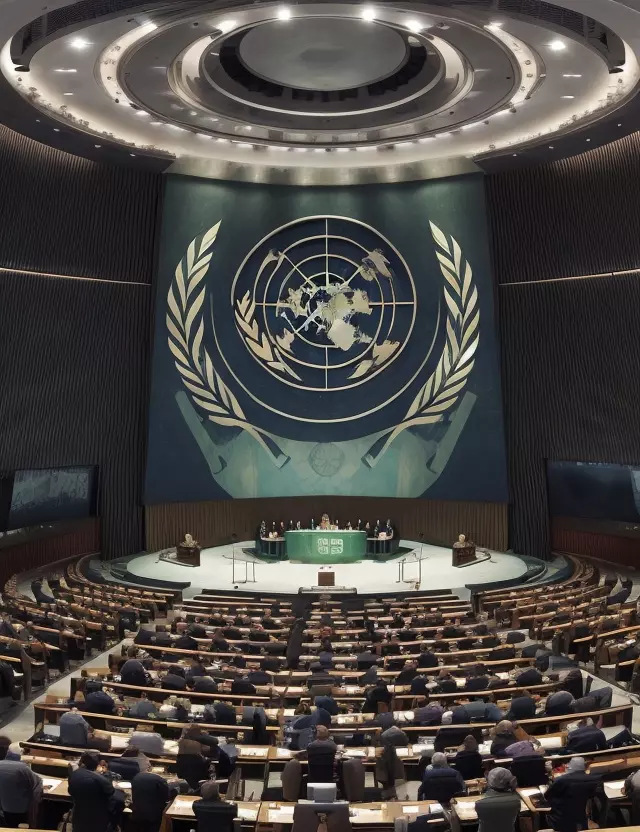A Beacon of Global Cooperation: The Establishment of the United Nations
Paving the Way for Peace and Diplomacy

On October 24, 1945, a historic moment took place as the United Nations (UN) was officially established. This international organization, born in the aftermath of World War II, has played a crucial role in promoting diplomacy, peace, and cooperation on a global scale.
The Context of World War II
The devastation caused by World War II, with millions of lives lost and immense destruction, underscored the need for a new global order that would prioritize diplomacy over conflict.
The Birth of the United Nations
Representatives from 50 nations gathered in San Francisco to draft the United Nations Charter. This document laid the foundation for the UN, with the goal of preventing future conflicts and fostering international collaboration.
Key Principles and Goals
The United Nations was founded on principles such as maintaining international peace and security, promoting human rights, and encouraging social and economic progress worldwide.
Membership and Expansion
Initially, 51 countries joined the UN. Over the decades, the organization's membership grew to encompass a majority of the world's nations.
Structure of the United Nations
The UN consists of various bodies, including the General Assembly, the Security Council, and specialized agencies like UNESCO and the World Health Organization (WHO).
Peacekeeping and Conflict Resolution
The UN has been involved in numerous peacekeeping missions and conflict resolution efforts worldwide, striving to prevent and mitigate conflicts.
Promoting Human Rights
The Universal Declaration of Human Rights, adopted by the UN in 1948, remains a cornerstone of global human rights advocacy.
Humanitarian Work
The UN is also known for its humanitarian efforts, providing aid to communities affected by natural disasters, conflicts, and other crises.
Challenges and Achievements
Throughout its history, the United Nations has faced challenges and criticism, but it has also achieved significant successes in areas like public health, education, and peacekeeping.
The UN Today
Today, the United Nations continues to serve as a vital forum for international cooperation, addressing global challenges such as climate change, poverty, and conflict.
The establishment of the United Nations on October 24, 1945, marked a pivotal moment in history, as nations came together to create an organization dedicated to maintaining peace, fostering cooperation, and promoting the well-being of humanity. As the UN celebrates its legacy, it continues to play a central role in shaping a more peaceful and prosperous world.



